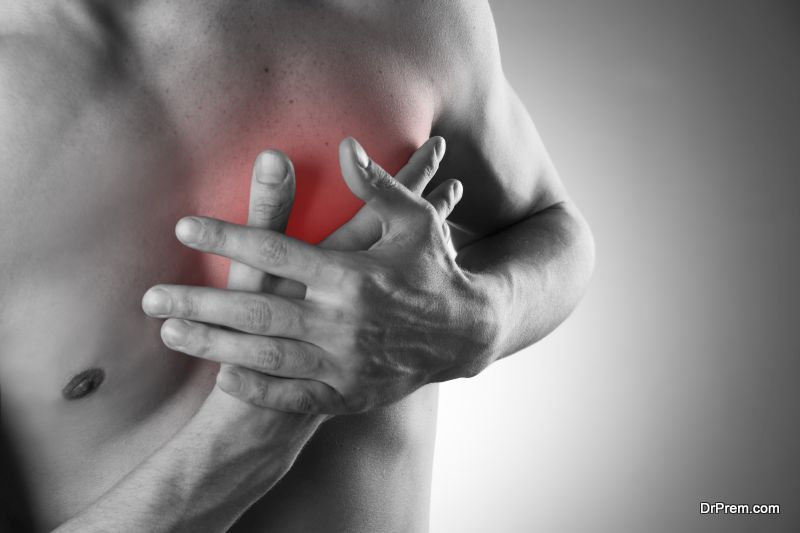Fighting drug or alcohol addiction is no easy task. Not only are you retraining your brain to no longer crave or depend on your drug of choice, but your body will go through physical changes. The human body is a fascinating thing and in time, adjusts and adapts to changing factors. Most people going through addiction recovery are paranoid and consumed with thoughts of no longer experiencing the high they once did. They sometimes fail to consider the physical changes their body is about to endure. This article will detail what to expect from withdrawal and how to prepare and combat the physical effects.
Withdrawal Symptoms
Before we discuss the wide range of withdrawal symptoms users experience, it’s important to understand the two types of withdrawal – acute and post-acute. Acute withdrawal is when a user first stops taking their drug of choice and is also known as detox. It’s the amount of time it takes for your body to fully eliminate the substance. Following this phase, your body goes through post-acute withdrawal. This is the stage of the withdrawal process where your body adjusts to life without the drug. Symptoms vary from person to person and are different between these two phases.
Insomnia
 Withdrawal from any substance that your body depends on can be an exhausting process. Many recovery patients experience insomnia during both acute and post-acute withdrawal caused by an imbalance in dopamine levels. Your brain slows down the production of dopamine in drug users because the illegal substance is delivering plenty on its own. But when you stop taking the drug, your brain needs to re-learn how to release sufficient amounts of dopamine. With it, users experience anxiety and high stress levels, making sleep nearly impossible. Their mind and bodies are in a permanent state of panic and paranoia without dopamine to help relax and ease their nerves. It takes the human brain approximately 6 weeks to return to delivering healthy levels of dopamine.
Withdrawal from any substance that your body depends on can be an exhausting process. Many recovery patients experience insomnia during both acute and post-acute withdrawal caused by an imbalance in dopamine levels. Your brain slows down the production of dopamine in drug users because the illegal substance is delivering plenty on its own. But when you stop taking the drug, your brain needs to re-learn how to release sufficient amounts of dopamine. With it, users experience anxiety and high stress levels, making sleep nearly impossible. Their mind and bodies are in a permanent state of panic and paranoia without dopamine to help relax and ease their nerves. It takes the human brain approximately 6 weeks to return to delivering healthy levels of dopamine.
Depression
Recovering addicts have been ripped from the life they once knew and thrown into a new way of living, minus their substance of choice. For most addicts, their drug is the only thing that keeps them going. Without it, they feel lost, paranoid, depressed, and hopeless. That’s why depression is a common side effect of withdrawal. Social isolation can cause depression since most drug users in the recovery process will no longer associate with the same people they once did. These individuals may be their best friends, but aren’t a positive or supportive influence in their recovery journey. It may also be difficult for drug users to find enjoyment without their drug of choice. In time, recovering addicts will make new friends and find new and healthier ways to enjoy life.
Cold and Flu Symptoms
 Withdrawal can cause very real, very serious physical symptoms in patients as their body adjusts to life without the substance. Cold and flu symptoms are relatively common in recovery patients and include things like sneezing, runny or stuffy nose, coughing, chills, and fever. Doctors and other healthcare professionals will closely evaluate any patients experiencing a fever during withdrawal to confirm it’s not a sign of an underlying infection. Withdrawal also causes a weakened immune system, making recovering addicts more susceptible to infection and illness.
Withdrawal can cause very real, very serious physical symptoms in patients as their body adjusts to life without the substance. Cold and flu symptoms are relatively common in recovery patients and include things like sneezing, runny or stuffy nose, coughing, chills, and fever. Doctors and other healthcare professionals will closely evaluate any patients experiencing a fever during withdrawal to confirm it’s not a sign of an underlying infection. Withdrawal also causes a weakened immune system, making recovering addicts more susceptible to infection and illness.
Pain Sensitivity
Pain sensitivity is common during opioid withdrawal. Opioid addiction is often a result of dependence on a legally prescribed pain reliever long after the need is gone. Many doctors prescribe opioids such as oxycodone, fentanyl, and hydrocodone, just to name a few. Stronger opioids include morphine and Dilaudid, although fentanyl is the strongest form of opioid used outside of the hospital. Because these drugs are designed for pain relief, once an addict stops taking them (following a dependency or addiction), their pain tolerance is extremely low. Their body is accustomed to little or no pain, thanks to the opioids in their system. In time, their body will return to its normal state and learn internal pain management techniques. They will also become less sensitive to external triggers.
Irregular Heart Rate

Your heart is the core of your internal system so it’s no surprise that both drug use and drug withdrawal can negatively affect heart functionality. When taking illegal substances, you may experience rapid heart rate, erratic heart beats, and in some cases, total heat failure, resulting in an overdose or death. As your body withdraws from these drugs, your heart may experience a period of imbalance.
Additional Withdrawal Symptoms
No two people will experience the same withdrawal symptoms at exactly the same time. Several factors determine the type of withdrawal a person has and how intense. Things like the type of substance, how frequent the person was using, the amount of drugs the person ingested, the length of time they were addicted, and the age, size, and gender of the individual. While some people experience fewer and less intense withdrawal symptoms, other people describe withdrawal as torture. Here are a few additional withdrawal symptoms some addicts may encounter.
- Suicidal thoughts
- Muscle weakness
- Fatigue
- Vomiting/Diarrhea
- Tremors
- Cravings
- Tingling in the extremities
- Excitability
Detox programs and recovery centers are designed to help patients handle and combat such withdrawal symptoms. Read on for some more tips for how to deal with these types of symptoms.
Tips for Combating Withdrawal Symptoms
Get Help
 The most important part of the addiction recovery process is recognizing that you’re not in this alone. Getting help is the best thing you can do to ensure your success. Whether it’s a support group, outpatient program, or inpatient detox facility, being surrounded by supportive and knowledgeable people may mean the difference between success and relapse. Most detox and inpatient facilities are also licensed to offer medications to help combat withdrawal symptoms and make the detox process more manageable.
The most important part of the addiction recovery process is recognizing that you’re not in this alone. Getting help is the best thing you can do to ensure your success. Whether it’s a support group, outpatient program, or inpatient detox facility, being surrounded by supportive and knowledgeable people may mean the difference between success and relapse. Most detox and inpatient facilities are also licensed to offer medications to help combat withdrawal symptoms and make the detox process more manageable.
Exercise
Believe it or not, but during the withdrawal process, exercise can help you stay healthy both mentally and physically. During exercise, the brain releases endorphins which elicit feelings of happiness and relaxation. These can help combat some of the more negative feelings you may experience. Exercise is also known to decrease stress. Try taking your workout routine outdoors and get some vitamin D and fresh air to boost your mood also.
Maintain a Healthy Diet and Hydrate

What you put into your body during detox is equally as important as what you’re taking out during the withdrawal process. That means eating a healthy diet rich in nutrients, vitamins, and minerals. These ingredients can help bring your brain and body back into a healthy balance. Hydrating with plenty of water is also an important way to rid your body of additional toxins and combats dehydration during withdrawal.
The withdrawal process isn’t an easy one but it’s also not impossible. Knowing the symptoms you may endure and how to combat them will help you succeed in your recovery and reclaim your life.
Article Submitted By Community Writer




